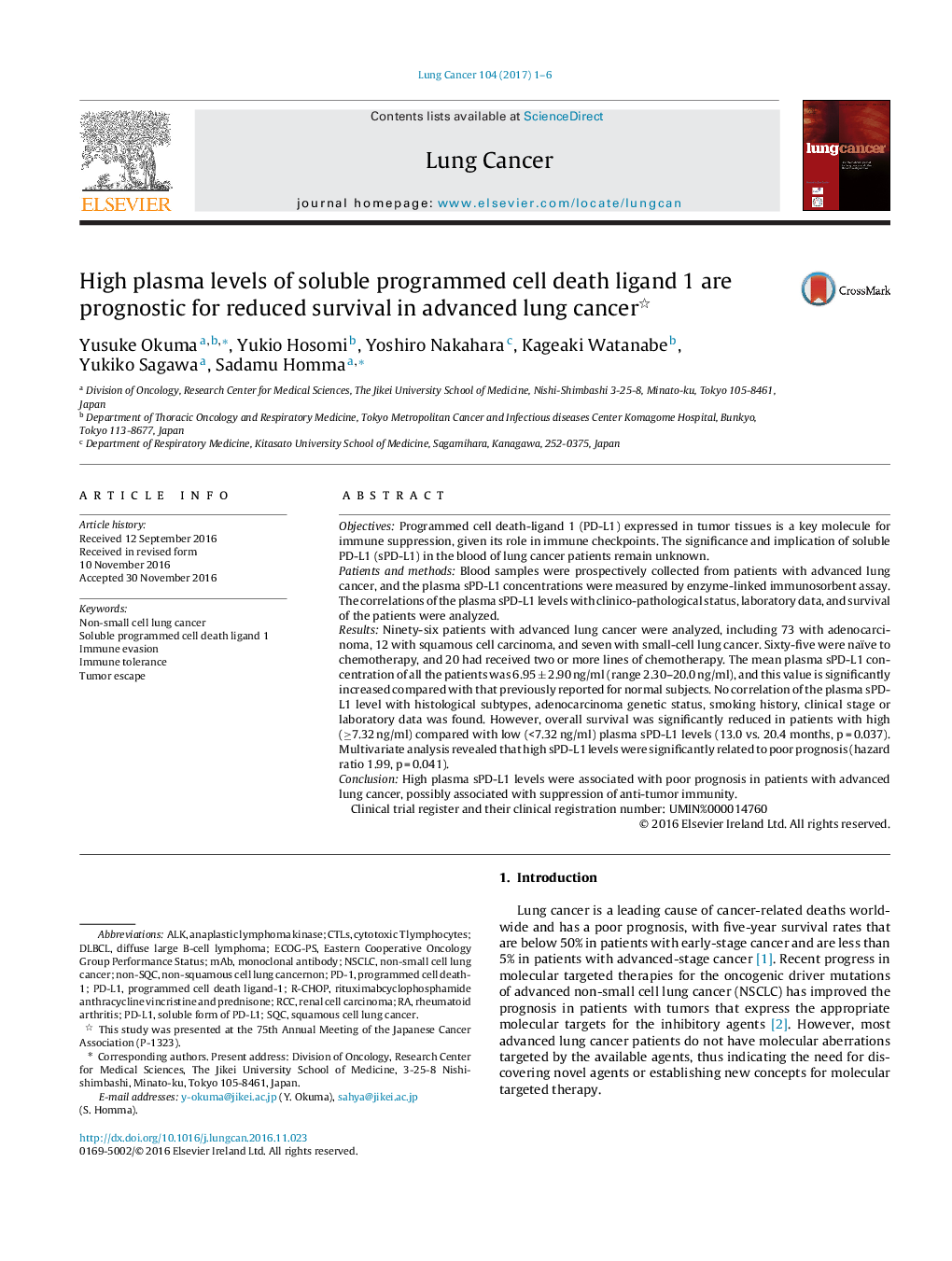| کد مقاله | کد نشریه | سال انتشار | مقاله انگلیسی | نسخه تمام متن |
|---|---|---|---|---|
| 5528399 | 1547963 | 2017 | 6 صفحه PDF | دانلود رایگان |
- PD-L1 in lung cancer is a key molecule for immune checkpoint mechanism.
- The implication of soluble PD-L1 (sPD-L1) in lung cancer patients remains unknown.
- High levels of sPD-L1 was associated with poor prognosis in advanced lung cancer.
- SPD-L1 may be a useful biomarker for immune checkpoint therapy.
ObjectivesProgrammed cell death-ligand 1 (PD-L1) expressed in tumor tissues is a key molecule for immune suppression, given its role in immune checkpoints. The significance and implication of soluble PD-L1 (sPD-L1) in the blood of lung cancer patients remain unknown.Patients and methodsBlood samples were prospectively collected from patients with advanced lung cancer, and the plasma sPD-L1 concentrations were measured by enzyme-linked immunosorbent assay. The correlations of the plasma sPD-L1 levels with clinico-pathological status, laboratory data, and survival of the patients were analyzed.ResultsNinety-six patients with advanced lung cancer were analyzed, including 73 with adenocarcinoma, 12 with squamous cell carcinoma, and seven with small-cell lung cancer. Sixty-five were naïve to chemotherapy, and 20 had received two or more lines of chemotherapy. The mean plasma sPD-L1 concentration of all the patients was 6.95 ± 2.90 ng/ml (range 2.30-20.0 ng/ml), and this value is significantly increased compared with that previously reported for normal subjects. No correlation of the plasma sPD-L1 level with histological subtypes, adenocarcinoma genetic status, smoking history, clinical stage or laboratory data was found. However, overall survival was significantly reduced in patients with high (â¥7.32 ng/ml) compared with low (<7.32 ng/ml) plasma sPD-L1 levels (13.0 vs. 20.4 months, p = 0.037). Multivariate analysis revealed that high sPD-L1 levels were significantly related to poor prognosis (hazard ratio 1.99, p = 0.041).ConclusionHigh plasma sPD-L1 levels were associated with poor prognosis in patients with advanced lung cancer, possibly associated with suppression of anti-tumor immunity.Clinical trial register and their clinical registration number: UMIN%000014760
Journal: Lung Cancer - Volume 104, February 2017, Pages 1-6
